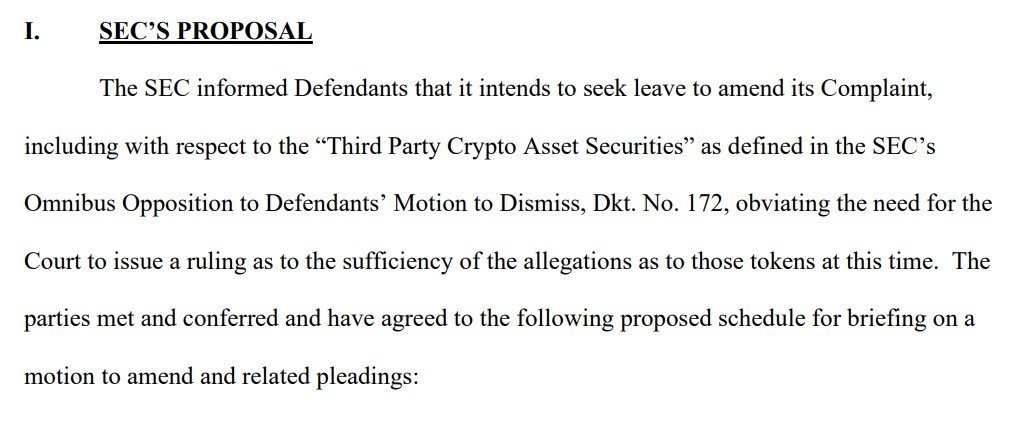SEC Withdraws from Binance Case, and Russia to Adopts Crypto for International Trade
On July 30th, 2024, it was announced on X (formerly known as Twitter) that the SEC had withdrawn from the Binance case related to securities claims.
The SEC had accused certain tokens, including SOL, ADA, MATIC, FIL, ATOM, SAND, MANA, ALGO, AXS, and COTI, of being unregistered securities. This move marks a significant development in the crypto space, potentially impacting the classification and trading of these tokens.
Simultaneously, Russian lawmakers passed a bill enabling businesses to utilize cryptocurrencies to circumvent Western sanctions. The law, slated to take effect in September, paves the way for the first cryptocurrency transactions to occur before the end of 2024.
It is essential to note that the information provided here is intended for educational and informational purposes only and should not be construed as financial advice. As with any investment, individuals should conduct thorough research and consider consulting with a financial professional before making any decisions.
This signifies a major shift in international trade and finance, as Russia embraces digital currencies for cross-border transactions. These developments underscore the increasing adoption and integration of cryptocurrencies into global financial systems.
Classification Debate: Crypto Tokens, Securities, or Commodities?
The question of whether cryptocurrencies are securities or commodities has been a topic of debate and discussion in the financial industry for many years. The answer to this question has significant implications for how cryptocurrencies are regulated and taxed, as well as how they are viewed by investors and the public.
Firstly, it is important to understand what securities and commodities are. Securities are financial instruments that represent ownership in a company or organization, such as stocks, bonds, and options. Securities are typically bought and sold on regulated exchanges and are subject to strict regulatory requirements.
Commodities, on the other hand, are physical goods that are traded on commodity exchanges, such as gold, oil, and wheat. Unlike securities, commodities are not subject to the same regulatory requirements and are often traded on unregulated exchanges.
So, are cryptocurrencies securities or commodities? The answer is not clear-cut, as it depends on the specific characteristics of each cryptocurrency. Some cryptocurrencies, like Bitcoin and Litecoin, are often viewed as commodities because they are finite in supply and have a value that is determined by supply and demand. These cryptocurrencies are often used as a store of value, like gold or other precious metals.
Other cryptocurrencies, like Ethereum and Ripple, are more complex and can be used for a variety of purposes beyond simply storing value. These cryptocurrencies are often used to power decentralized applications (Dapps) and smart contracts and are viewed by some as securities because they represent ownership in a network or platform.
The distinction between securities and commodities is important because it determines how a cryptocurrency is regulated and taxed. For example, securities are subject to strict regulatory requirements, such as registration with the Securities and Exchange Commission (SEC) in the United States. This means that cryptocurrencies that are classified as securities would be subject to similar regulatory requirements, which could impact their development and adoption.
Commodities, on the other hand, are subject to less regulatory oversight, which could make it easier for cryptocurrencies that are classified as commodities to be traded and used in the marketplace. However, this also means that these cryptocurrencies may not have the same level of investor protection as securities.
In recent years, there have been efforts to provide more clarity on the classification of cryptocurrencies. In the United States, the SEC has stated that cryptocurrencies like Bitcoin and Ethereum are not securities, while other cryptocurrencies are still being evaluated on a case-by-case basis.
In conclusion, the question of whether cryptocurrencies are securities or commodities is not a clear-cut one. The classification of a cryptocurrency depends on its specific characteristics and use cases. While some cryptocurrencies are viewed as commodities and others as securities, there is an ongoing effort to provide more clarity and regulatory oversight in the cryptocurrency industry.


